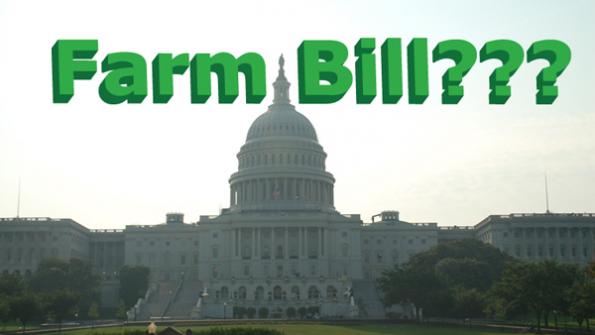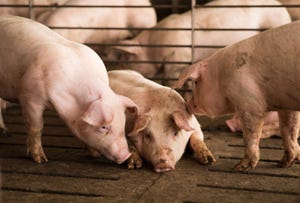Second Farm Bill Extension Viewed as Likely
June 24, 2013

A trio of agricultural economists from Purdue University view as likely another extension of the 2008 farm bill after last week’s failure of the House of Representatives to pass new farm legislation.
Chris Hurt, Otto Doering and Roman Keeney, who closely follow developments of farm legislation, question whether Republican leadership in the House will allow debate on the contents of the farm bill again anytime soon. With the one-year extension set to expire at the end of the fiscal year Sept. 30, farmers could see another extension of the five-year agricultural spending plan.
“There was just too much in the bill to dislike,” Hurt says. “There were too many amendments passed at the last moment that changed the bill.”
One amendment in particular, sponsored by Rep. Steve Southerland (R-FL), would have given states the power to require food stamp recipients to seek work while on the program. That brought a backlash from Democrats and was key to the bill's failure last Thursday (June 20).
Without passage of a farm bill, farm legislation would revert to a 1949 law that could lead to steep price increases on some items, including milk, for consumers. Legislators avoided that scenario by extending the 2008 farm bill in late December as dairy subsidies were scheduled to expire and the nation also was about to fall off the “fiscal cliff.”
Like what you’re reading? Subscribe to the National Hog Farmer Weekly Preview newsletter and get the latest news delivered right to your inbox every week!
“We cannot go without a farm bill because the 1949 legislation has too extreme of consequences,” Hurt says. “So odds may favor a second year of extension of the old farm bill.”
Doering believes the bill foundered on elements not directly related to agriculture – primarily the battle over how much spending should be cut from the Supplemental Nutrition Assistance Program, known as food stamps, and from commodity programs.
“There was the lack of real budget cuts in either the Senate or House version for either the food or the commodity titles, which rankled those conservatives wanting to make substantive, deep budget cuts,” Doering says. “The regions, especially the South, had already gained what they wanted most out of the commodity titles, so it came down to an almost ideological battle on how much to cut food stamps and whether the bill actually met any real budget-cutting principles.”
The Republican majority in the House will not follow its leadership and likely will remain fractured on important issues, such as a long-term budget fix, Doering says. “It will come together primarily on issues of shared values, and the farm bill was not such an issue,” he says.
While it is difficult to predict what Congress will do about farm legislation this year, Keeney says farmers should understand that the Sept. 30 end of the federal fiscal year doesn't mean that all farm programs would end on that date without congressional action. Programs for corn and soybean crops, for example, remain intact throughout the crop season, which extends well beyond September.
“September 30 is not doomsday for farming and safety nets,” he says. “Expiration of the fiscal year last year wasn't a big deal at all, and it probably wouldn't be this year, either.”
You might also like:
NPPC Comments on Failed Farm Bill
Farm Bill’s Demise Highlights Divide between Urban, Rural America
Restaurant Chains Call on Congress to Repeal the RFS
You May Also Like



